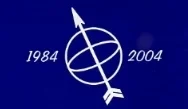Jul03
archive > Log > Log2003
Hong Kong

October security seminar

At the Royal Hong Kong Yacht Club on 19 March 2003, a group of more than 50 members and guests of the Hong Kong Branch had a preview of what is to come in the forthcoming biannual branch seminar, entitled 'Maritime security and terrorism'. The full-day event will take place on Thursday 30 October, in the 200-capacity auditorium of the 40,000 GT
passenger vessel Star Pisces, which will be moored alongside at Ocean Terminal.
Speakers based in the USA, Japan, Singapore, and Malaysia as well as Hong Kong, are lined up to present papers, among them Mr Kim E Petersen, CEO of SeaSecure LLC, a leading maritime security consulting company in the USA. Kim has more than 25 years of experience in domestic and international security and anti-terrorisin activities, and is currently Executive Director of the Maritime Security Council, an international body representing the interests of more than 65 per cent of the world's ocean carriers.
He gave a comprehensive presentation to the meeting in March and this is covered in a detailed article written by branch committee member Rhod McNeill, which can be read in it's entirety on the branch website, www.nautinsthk.com
After discussing the background to the stricter security measures the US government is spearheading, and which have been reported in Seaways, he outlined the provisions of the advance manifest regulation which now requires that shippers and ocean carriers to provide US customs with manifest information for ocean-going containerised cargo 24 hours in advance of loading on board a vessel for shipment to the US; the container security initiative, the US Customs Service's programme to prevent container shipping from being exploited by terrorists; and C-TPAT, the customs-trade partnership against terrorism. This is a voluntary programme in which individual shipping companies develop and implement a sound plan to enhance security procedures.
Of most interest to members was Kim's dicussion of the ISPS Code, an extension of Solas legislation that will come into force on 1 July 2004. The objective of the Code is for shipping companies and port facilities to detect security threats, and take preventative measures against security incidents.
The Code requires that shipping companies appoint company security officers, carry out security assessments and develop ship security plans for all their ships, appoint ship security officers and supply their ships with security equipment - all of which provisions have also been described in detail in previous issues of Seaways.
Kim recommended a prioritised approach to implementing the Code, as there is little time remaining before it comes into force. The sequence in which tasks need to he accomplished is: 1. Select the Company Security Officer 2. Perform the Ship Security Assessments 3. Develop the Ship Security Plans 4. Select the Ship Security Officers 5. Establish security training programs for all ship crews 6. Obtain the required security equipment
Full details of the 2003 seminar programme will be posted on the Hong Kong Branch website, along with details of how to obtain tickets. The seminar is planned to coincide with the Hong Kong Maritime and Logistics Week 2003, when the city will host other maritime events designed to promote the activities of the industry and those who participate and contribute to it.
Contribuited by John B Wilson MNI
Seaways July 2003

